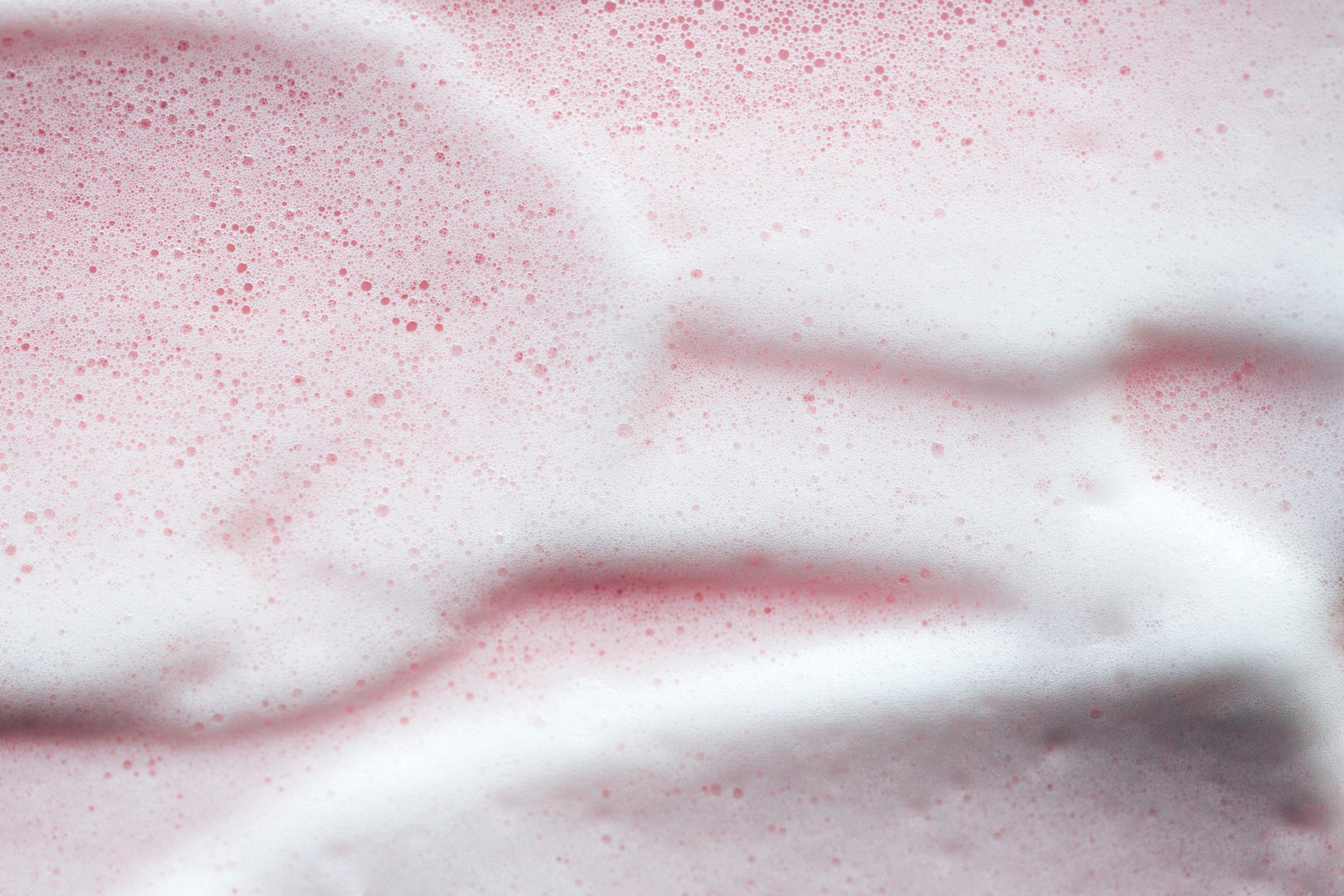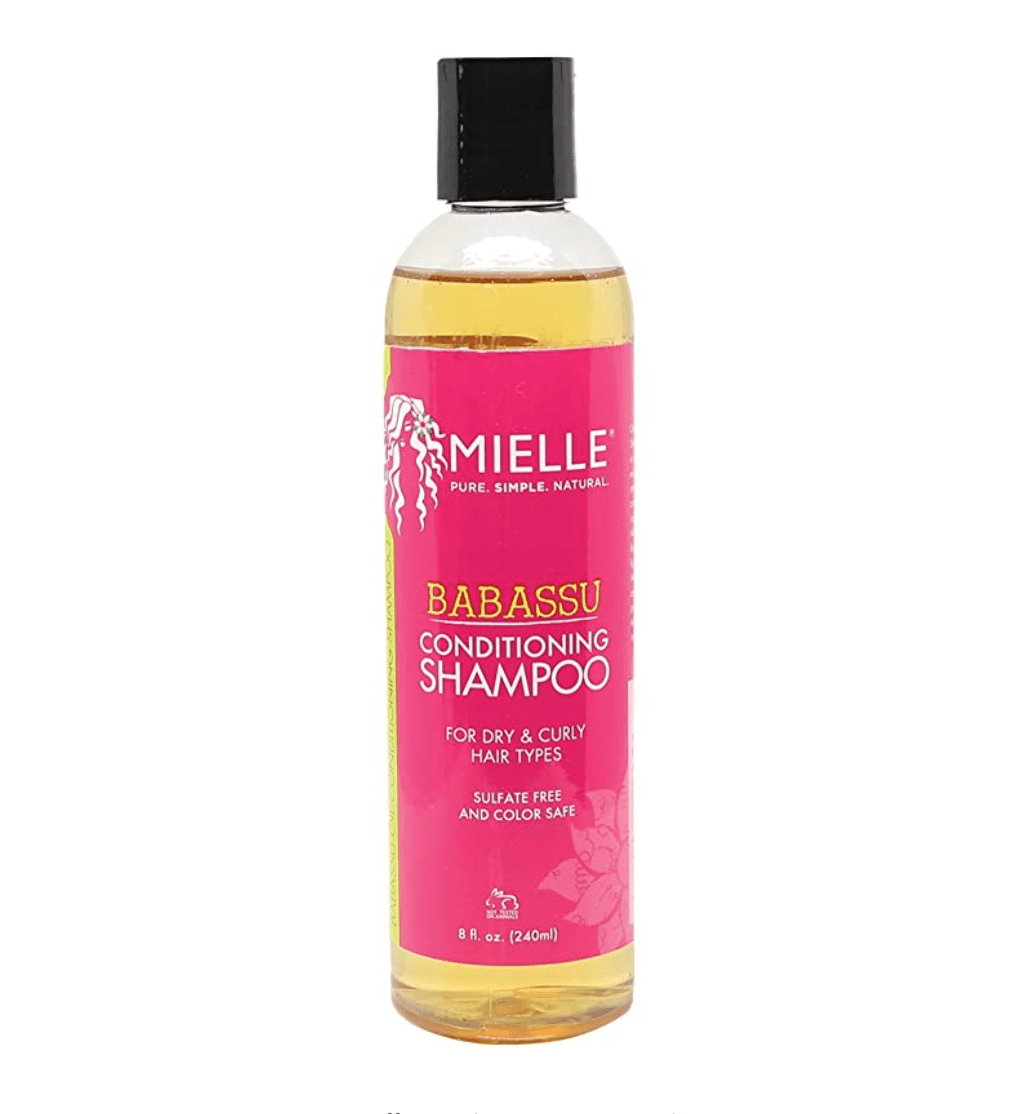Decyl-Glucoside for Hair: The Complete Guide

One of the most talked-about subjects in haircare is the use (or avoidance) of sulfates. Sodium lauryl sulfate is one of the most commonly discussed ingredients, as it has been found to strip the hair of color and natural oils. While some experts don’t buy into the sulfate-free controversy, many still choose to seek out shampoos that contain alternative cleansers. Enter, decyl-glucoside.
Decyl-glucoside is a sulfate-free surfactant used in cosmetic products, such as shampoos and cleansers. It’s derived from plant-based fatty alcohols (coconut c8-16) and glucose (sugar/starch), and it’s become popular because of its ability to lather into a generous foam.
Decyl-glucoside is biodegradable and considered gentle due to its low risk of skin irritation. It is unique because despite not containing sulfates, it has a superior ability to create and maintain a foamy lather. For this reason, it’s often used in baby shampoos and shampoos for those with scalp irritation.
Creating maximum lather with no sulfates, decyl-glucoside sounds almost too good to be true. But is there anyone who shouldn’t use it? We turned to two dermatologists for the full scoop.
Meet the Expert
- Jayne Bird, MD, FAAD, is a board-certified dermatologist in Philadelphia and the co-owner of Embrace Dermatology and Aesthetics, LLC.
- Azadeh Shirazi, MD, is a board-certified dermatologist and founder of La Jolla Laser Dermatology.
Type of ingredient: Cleanser
Main benefits: Cleanses scalp and hair, maintains natural moisture, and reduces chance of skin irritation
Who should use it: Decyl-glucoside is safe for use on all hair types and textures, but those with curly or dry hair who are looking to avoid sulfates would benefit most. It is also beneficial for those with irritated and dry scalps who are looking to cleanse without stripping the skin of its natural oils.
How often can you use it: It is safe for daily use, but like other surfactants, it should not be left on for more than a few minutes at a time to avoid irritation. All hair and scalp needs will vary from person to person, so it’s important to speak to your dermatologist if you feel your current cleansing routine is not working for you.
Works well with: It can be combined with all types of other surfactants. It’s often combined with natural polymers, such as xanthan gum and carrageenan gum, to create a thicker formula. Combining it with cocamidopropyl betaine or soy results in a smoother consistency.
Don’t use with: It has been shown to cause irritation when combined with methylene bis-benzotriazolyl (MBBT), but the cause of this irritation has not been determined. Those with a known allergy to the alkyl glucosides or coconut should not use decyl-glucoside.
Benefits of Decyl-Glucoside for Hair
Keeping the scalp clean of oil and buildup is essential for good scalp health and overall hair appearance. Shampoos are surfactants, which work by reducing the surface tension between oil and water to remove dirt, debris, and oil from the hair and scalp. Many shampoos use sulfates, such as sodium lauryl sulfate and sodium laureth sulfate, which cause a lathering effect for a deep clean, Shirazi explains.
Decyl-glucoside is a unique cleanser because it has the ability to lather into a rich foam despite not containing sulfates. Sulfates are controversial because of their ability to strip hair of color and natural oils. Those in the curly hair community or with color-treated treated hair would benefit from decyl-glucoside’s ability to gently cleanse while still foaming into a rich lather. Many shampoo alternatives for dry and curly hair do not foam up, which may result in the feeling that the scalp is not thoroughly cleaned because we traditionally expect a lather from shampoo.
- Gently cleanses scalp and hair: Decyl-glucoside is able to cleanse the scalp and hair of dirt and excess oil without the risk of irritation posed by other cleansers that contain sulfates. “Decyl-glucoside is considered much less irritating and more gentle on the skin, with superior foaming properties that disperse the formulation across the skin, improving the feel,” Shirazi explains. Decyl-glucoside is considered so gentle that many baby shampoos and washes trust it on ultra-sensitive baby skin.
- Maintains moisture: Unlike traditional sulfates used in many shampoos, decyl-glucoside is not stripping. “By creating a nice foam and rinsing out well, it is capable of effectively cleansing the scalp and hair—all while maintaining moisture,” Bird shares. This makes it a great option for those with dry or curly hair who want to remove buildup and avoid harshly disrupting the scalp’s natural oil production.
- Does not irritate scalp or skin: Sulfates can be harsh on the skin, leading to irritation, flaking, and inflammation, Shirazi explains. By cleansing without sulfates, decyl-glucoside is able to provide a luxurious lather that does not irritate the scalp or skin. Scalp inflammation and irritation are leading causes of hair loss, so reducing these conditions can lead to an improved overall appearance of the hair.
- Provides lift: Many sulfate-free shampoos do not form a lather and can leave the hair feeling heavy or limp. Shirazi recommends decyl-glucoside to those looking to add texture or volume to the hair shaft thanks to its superior foaming properties compared with other sulfate-free cleansers.
- Shampoos without damaging the environment: Bird explains that decyl-glucoside is formed by reacting a natural alcohol from coconut with sugar (glucose). It’s considered mild, low toxicity, and eco-friendly, making it a great option for those looking to minimize the environmental footprint of their beauty routine. Shirazi agrees, adding that as a plant-based ingredient, it’s a sustainable alternative to conventional surfactants.
Hair Type Considerations
Our experts agree that decyl-glucoside is safe for all hair types, including curly, dry, and color-treated hair. If you’re looking for a solution for removing buildup without stripping hair of color or natural oils, decyl-glucoside is a solid choice. This cleanser is also a great option for those with inflammation or irritation of the scalp who want to cleanse without worsening the condition of the skin. Both experts agree that anyone with a known allergic contact dermatitis reaction to any alkyl glucosides or with a coconut allergy should avoid decyl-glucoside.
How to Use Decyl-Glucoside for Hair
Decyl-glucoside can be found listed as an ingredient on many beauty products, but it is most often found in the baby care aisle due to its gentle nature. It is a great option for those who are trying to avoid sulfates in their haircare routine but miss the rich lather of traditional shampoos. This is not an ingredient for purchase individually, but instead something you would look for on the label of shampoos and co-washes. Shirazi recommends the Mielle Organics Babassu Conditioning Sulfate-Free Shampoo as a gentle moisturizing shampoo that contains decyl-glucoside.

Mielle Organics
Babassu Conditioning Sulfate-Free Shampoo
$10
As with other surfactants, products containing decyl-glucoside should only be left on for a few minutes before thoroughly rinsing out to avoid irritation. Products containing decyl-glucoside can be safely used daily, however it is important to avoid over-cleansing the hair and scalp, as this can contribute to irritation and dry hair/scalp conditions. If using a sulfate-free cleanser, it is important to actively work the product into your scalp by doing the following:
- Take recommended amount of product into your palm and work it between your hands to create a lather.
- Using your finger pads, apply the cleanser directly to the scalp—it may be beneficial to flip hair over to reach the back of your hair.
- Massage the product into your scalp using only your finger pads—using your nails may feel good, but it can actually cause irritation and damage to the skin of your scalp!
- Rinse thoroughly starting at the scalp, allowing the cleanser to move through the length of your strands.
The 11 Sulfate-Free Shampoos That Are Gentle On Your Hair and Wallet






